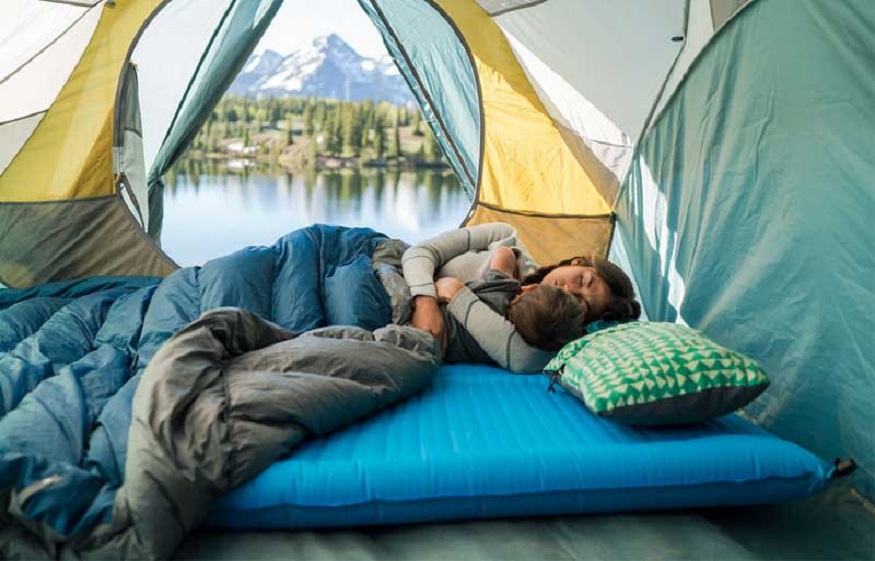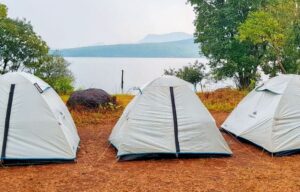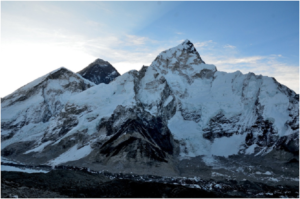
When camping it is important to ensure that you get adequate rest at the end of the day. The great outdoors can be fun but also dangerous, hence the need to have good cognitive function and alertness that comes from getting good rest. Physical exertions are also easier to deal with your mind has been well-rested.
It can however be difficult to achieve good sleep when outdoors as it is a big change in environment. Here are some helpful tips you can use to try and make this transition easier and ensure you gain maximum benefits from spending more time in nature.
1. Pick the right spot
Whether you are in a tent or on open ground, ensure the surface is as level as possible, with no rocks or tree roots to bother your comfort or puncture your sleeping pad or mattress. Sleeping on sloping ground can cause you to slide off your sleeping pad or even end up rolling as you turn over. Try to get to camp as early as you can so you can find a nice clear and flat area on which to pitch your tent.
2. Carry the right bedding
After a long day of hiking, fishing setting up camp, and so on, you will want nothing more than to sink into the comfort of some warm bedding and drift away. Whether you are sleeping in the open or a tent, you need to ensure you at minimum have a sleeping pad or mattress on which to place your sleeping bag.
They provide insulation from the often-cold ground beneath, ensuring you do not lose body heat that way and have an uncomfortable night’s rest. Self-inflating mattresses tend to be the thickest and most durable option, but are heavier to carry around. Foam mattresses are more lightweight and make for a good base layer for tents.
3. Pack a pillow
It is commonplace to roll up some clothing and use that as a pillow, but this is never as comfortable as actually bringing along a proper pillow. There are camping pillows that can be just as comfortable as what you use at home but take up less space. Ensure you choose a design that is suited to your style of sleeping. For instance, if you sleep on your back you will likely be comfortable with a thinner pillow than a side sleeper who will need higher support. If not on foot, a regular pillow will hardly take up much space in your car.
4. Use a camping cot
If you are not traveling around on foot with your gear, then consider loading up your vehicle with a camping cot. They allow you to comfortably sleep off the ground. Many people get back pain and other discomforts even when sleeping on the most level ground. This option is as close as you can get to sleeping in a regular bed, with the added advantage that you can even use it at home when you have more guests sleeping over than expected.
They come in foldable designs and various weights. Some lightweight designs that come with their own carrying bags can be taken along when hiking but the heavier options tend to be more durable. They can also be found in different sizes and styles, allowing for couples to share or even bunk bed designs for kids. You can even get options with inflatable mattresses integrated for greater comfort.
5. Ensure downtime
The more physical activity you engage in throughout the day, the more ready your body will be for some good night’s rest. Most people however need to ensure they tone down this activity in the evening. Exercise too close to your bedtime will stimulate endorphins that will boost brain activity and keep you more awake and alert. Try to avoid stimulation for the last 1-2 hours before you plan to snuggle in.
6. De-stress
Clearing your mind and allowing peaceful thoughts can help promote better sleep. You can achieve this by taking along a physical book to read that will help make your mind de-stress and encourage you to drop off to sleep easily. You can also listen to soothing music or a podcast. Avoid screen time as this will stimulate you and disrupt the melatonin surge needed for good sleep. Lastly, you can also do meditation and breathing exercises for a good night’s rest — learn more about it from Motherhoodcommunity.
7. Wear earplugs
Though it might feel a little unnatural, wearing earplugs can help reduce your anxiety and natural sounds of the surrounding wilderness. It can also help block out noise from other campers who may be more boisterous or snore.
8. Keep bugs out
Be sure to check your tent for holes before you set out. Also, pack DEET that you can apply to your skin to repel bugs. Wear long-sleeved clothing and full pants when sleeping. Adding a mosquito net will also likely give you greater peace of mind as are assured bugs cannot get past the netting, no matter how hard they buzz around.
9. Clean up before bedtime
Remnants of food can easily attract vermin and even bears. Be sure to always clean up properly after meals. Get rid of food scraps, clean cookware, and utensils, and seal everything up before going to bed. If you have been grilling and the smell of the food has got into your clothes, you should even consider changing out of them and packing them in your backpack where the odor will not be easily detected.
10. Hydrate
Ensure that you properly hydrate throughout the day. Avoid chugging too much water only when you feel thirsty. Especially if you have been hiking or engaging in other physical activity during this time. Keep steadily drinking water, aiming for about 3.7 liters for men and 2.7 liters for women. More if you are in a hot climate.
Stop drinking water and other liquids about 2 hours before your bedtime. Do the same with food and snacks. This will help reduce the need to have to wake up in the middle of the night to urinate. The stress of having to possibly creep into the night to pee can bother some people’s sleep so make it so you can sleep till morning comfortably.







